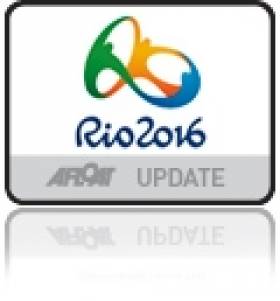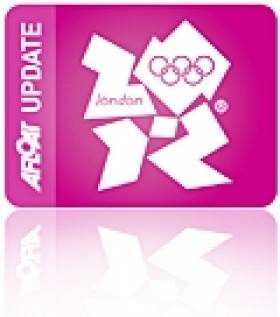Displaying items by tag: Princesa Sofia regatta
World Cup Sailing Season to Open with 53rd Trofeo Princesa Sofia Mallorca Next April
With exactly one hundred days to go until the start of the 53rd Trofeo Princesa Sofia Mallorca the Organising Committee has just published the Notice of Race.
As regular Afloat readers will recall, Dublin 49er campaigners Robert Dickson and Sean Waddilove led the regatta after two days last April.
The first major international Olympic class event of the year will once again be jointly organised by the Real Club Náutico de Palma, the Club Náutic S'Arenal, the Club Marítimo San Antonio de la Playa, the Federación Balear de Vela and the Real Federación Española de Vela.
 The 53rd Trofeo Princesa Sofia Mallorca is the first major international Olympic class event of 2024
The 53rd Trofeo Princesa Sofia Mallorca is the first major international Olympic class event of 2024
Ferran Muniesa, technical director of the Trofeo Princesa Sofía Mallorca by Iberostar, explains: "This shared joint organisation really is the secret of the Sofía's success. An event of such a scale is only possible thanks to the efforts of the three clubs, the commitment of the very many people who make up the organisation and the support of all the institutions, sponsors and collaborators involved. We do everything we can for the sailors and for the sport of sailing, and it is a great responsibility that we take on with rigour, professionalism and passion.”
The publication of the Notice of Race officially opens the registration period. After the success of the record edition of 2023, which brought together nearly a thousand boats and 1,300 sailors in the Bay of Palma, the organisers are expecting a fleet of the highest quality. The best in the world will compete on the Bay of Palma.
Muniesa believes: "All Olympic eyes will be on the Sofia, it's like the official training for the Games. This year, the calendar is more complicated, because as the Games are in summer, many world championships have had to bring their dates forward. This will mean that there will be fewer people than usual in the weeks leading up to the event. Even so, we hope that everyone will come to Palma for the Sofia, the first regatta of the year where all the classes and teams come together. It is an honour and a source of pride for us.”
The ten classes for Paris 2024
The 53 Trofeo Princesa Sofía Mallorca by Iberostar brings together the ten sailing disciplines of the Paris 2024 Olympic Games. The women's ILCA 6, 49er FX, IQFoil and Formula Kite; the men's ILCA 7, 49er, IQFoil and Formula Kite; and the mixed 470 and Nacra 17 will compete in the Bay of Palma. The competition will take place between Monday, April 1st and Saturday, April 6th, when the Medal Races and Medal Series (depending on the class) will decide the champions of the 53rd Trofeo Princesa Sofía Mallorca. The regatta will open the World Cup Series 2024, the world league of Olympic classes.
The Notice of Race for the 53rd Trofeo Princesa Sofia Mallorca by Iberostar is available on the regatta's official website here
No Sponsor But Record Number Set to Attend Trofeo Princesa Sofia – ISAF Sailing World Cup, Mallorca
#olympicsailing – Annalise Murphy will be the sole Irish Laser Radial campaigner in a 103–boat fleet in Mallorca in two weeks time at the latest round of the ISAF World Cup.
Murphy will be joined in Spain by London 2012 team–mates Ryan Seaton and Matt McGovern sailing the Irish 49er, 'The tighter the better'. Also in Mallorca, is single–hander James Espey in the Laser class.
In spite of the financial problems caused by the loss of the main sponsor only a few weeks ago the 45 Trofeo Princesa Sofia regatta is about to become a record edition.
Only two weeks to go to the start of the Majorcan regatta, to be held in the bay of Palma from 29th March to 5th April, a large number of entries have been received to confirm the Princesa Sofia as a must do event in the calendar of sailors from all around the world.
A large number of International teams are already training in the bay of Palma with view to the Trofeo Princesa Sofia.
With entries still open in some classes and increasing day after day, the 45th edition of the Trofeo Princesa Sofia, next to last stage of the ISAF Sailing World Cup, has 623 boats entered which add to a total of 882 sailors from 55 nations.
High participation in classes Laser, Finn and Nacra 17. With 70 boats entered, the Nacra 17 fleet, the new mixed multihull class, is a big surprise.
Furthermore, all Olympic classes will be present this year in the bay of Palma as it happened last year following some editions in which some class was missing due to a clash in the calendar with its Class event. The 2.4mR Paralympic class will also come again to Mallorca with a new venue at Real Club Náutico de Palma.
"We are very satisfied with the number and quality of entries received this year at the Trofeo Princesa Sofia –explains Ferran Muniesa, Race Manager -. We have gone through very tough weeks following the loss of our main sponsor, to whom we are grateful for their six-year sponsorship. The number of participants gives us the energy to continue working to deliver one of the best editions ever and confirms we are the favourite event for all sailors".
"I would like to thank all the team and the Organizing Clubs, Arenal, Can Pastilla and Palma, for the enormous effort they are undertaking despite the forced budget restrictions, to make sure the Princesa Sofia continues to be one of the best events in the world", adds Muniesa.
As in previous years, a large number of International teams are already training in the bay of Palma with view to the Trofeo Princesa Sofia. German, Polish, British and Danish teams, among others, have chosen Mallorca as winter training venue before the start of the European sailing season. Within this training programme, the Arenal Training Camps Trophy was held from 13th to 16th March.
In fact, the Sofia is the starting gun of the European calendar. It is also the next to last stage of the ISAF Sailing World Cup, following the event in Asia (Qingdao, China), Oceania (Melbourne, Australia) and America (Miami, United States). The next and last stop will be the ISAF Sailing World Cup Hyères, in France at the end of April. From that moment, all teams will focus on the ISAF Sailing World Championships to be held in Santander in September, an event to decide half of the nation slots for the Rio 2016 Olympics.
Murphy Takes One and Two in Opening Palma Races
Sailing in a talented fleet of a thousand sailors from 53 nations, Annalise Murphy has scored a 1 and 2 in today's opening round of the 42nd Trofeo Princesa Sofia regatta, the third event in the Sailing World Cup circuit.
Murphy, from the National Yacht Club, won today's second race by a staggering margin of one minute and 30 seconds as the breeze freshened to 15 knots off Palma de Mallorca, on the Balearic Island of Spain.
The 21-year old sailor from Dun Laoghaire is in a tough fleet of 78, made up of all the top international trailists for next year's Olympic regatta in the Laser Radial Class. Today's opening races in 15 knots of breeze are the first of six days of racing.
Lastest Olympic Sailing News here































































